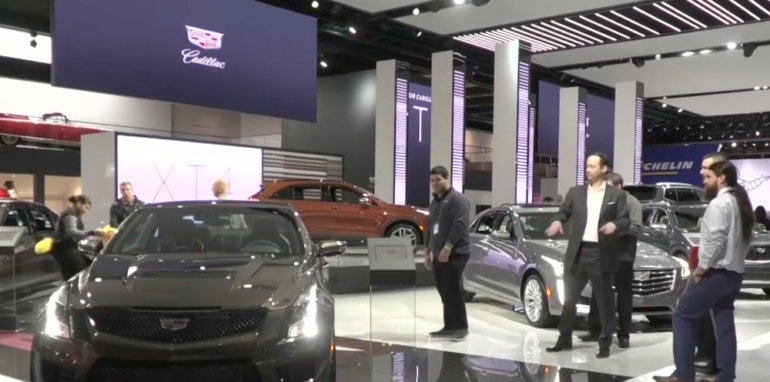Chinese auto makers are revving-up production for the U.S. market. They’re moving ahead with expansion plans, despite current trade tensions.
CGTN’s Dan Williams talked with some key executives at a meeting in the capital of the U.S. auto industry: Detroit.
The Detroit Auto Show is a key platform for car manufactures to showcase their very latest vehicles. But the event also gives an update on the overall health of the auto industry and examines future trends.
One development in recent years has been the growth of Chinese auto companies and their investment into the U.S. auto market. That was a subject discussed at Automotive News’ World Congress.
“China is already number one in terms of production and sales of cars, globally,” says Michael Dunne, the CEO of automotive company ZoZo Go. “But most of that story, almost entirely all of that story, is situated in China. That has been the story until now. However since 2015, we’ve seen tremendous investment globally by Chinese companies including here in the United States. That is a real major change in the global auto industry.”
Chinese Auto Maker GAC made a real statement of intent at the 2019 Auto Show, launching a new concept electric vehicle. Although GAC was the only Chinese exhibitor there, that could change in the future.
Jack Cheng is the co-founder of the China-based electric vehicle company, NIO. He’s also CEO of the company’s powertrain division, XPT. The company is already outselling Tesla in China and is now looking to expand.
“The first vehicle to market to the European standard already so we will be able to take a step into Europe,” says Cheng. “Then we can begin moving into the U.S. because it is a more critical market. So I think we will take about two years or three to move forwards.”
One Chinese owned company that is following a different path is Karma Automotive. They decided to base the production facility for their high-end EV cars in California.
“We are focused on the North America market first–we are not focused on the China market,” says Karma CEO Lance Zhou. “We can challenge the previous makers of luxury cars like Aston Martin and McLaren so that is our target market. We say we’ll win because we are more agile. We can get more of the latest technology because we are located in southern California.”
One subject that continues to dominate the discussion is the issue of tariffs and the ongoing trade dispute between the U.S. and China. The auto industry as a whole is monitoring developments closely.
David Wang is the regional Deputy General Manager of Yanfeng Automotive Design, a company that employs 12,000 people in North America.
“We have a lot of communication with our OEMs, with our customers about how they want to deal with this challenge, to find a common plan to minimize this risk,” Wang says. “As a China company, if we want to survive, we will have to deal with all of this kind of a challenge.”
Tariffs aside, the auto industry is set for significant change. Electrified and autonomous vehicles promise to revolutionize the sector. A number of Chinese companies hope to play a major role in that process.
 CGTN America
CGTN America

